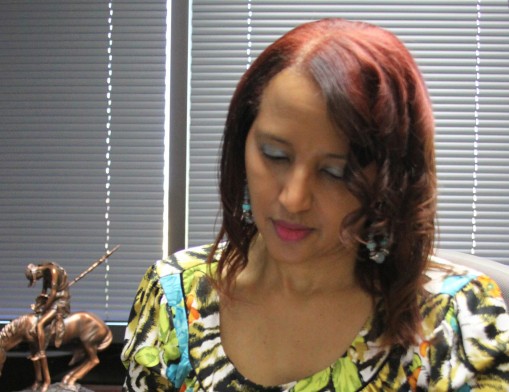
Using a checkbook register keeps Evette Kelley, of Tulsa, in control of her finances.
Who wants to save more money? To do so, we have to spend less, which can be accomplished in a number of ways.
• Avoid impulse shopping.
• Eliminate unwanted expenses, e.g., late charges, convenience fees.
• Set up automatic money transfers to a savings account.
But when we get down to the nitty-gritty of daily life, watching our spending habits can get lost in the moment. Just this week, I made three trips to my local superstore in a 72-hour period. Did I need to? At the time, I could justify each urgent need.Looking at my bank account balance, now I’m not so sure each trip was an absolute necessity.
So how do we fix our psychological need versus want versus necessity battle that keeps chipping away at our finances?
We start by using the best money management tool ever – the checkbook register (or its contemporary electronic clone). Tracking your money is the most important habit to develop. It takes a little time, but the benefit is financially rewarding. Here are four reasons, from bankers who swear by their checkbook registers, why you should take a closer look at your daily finances.
Reason No. 1. – Help curb impulse shopping and recognize wasteful spending habits. “You can make plans and budgets, but they don’t always go as you intend,” said Wayne Webster, VP, Commercial Loans, RCB Bank. “Your checkbook register offers an honest look at your spending history. For instance, you may not realize you’re spending $50 a month at the coffee shop. To see it written down, right there, may be motivation to cut back. Anytime I’m about to spend money, I look at my register and know exactly where I stand.”
Reason No. 2 – Know your actual account balance. “There are a lot of ways to interact with your checking account – debit cards, ATM withdrawals, checks, auto debits and online bill pay,” said Shelly Fields, Retail Coordinator, RCB Bank. “My register is the only way to keep an accurate balance at any given time.”
“It takes a matter of seconds to write down my expenses in my register before I leave the store,” added Webster. “Online and text banking don’t know if I wrote a check yesterday, or have an auto debit scheduled for next week. If I’m just spending and not tracking, and not comparing it with my budget, I may run into trouble.”
Reason No. 3 – Fraud, mistakes, fees and unwanted expenses can slip through the cracks if you don’t stay involved in your finances. “You could be a victim of fraud, or a simple mistake can happen at any given time,” said Brenda Romesburg, Customer Service Rep, RCB Bank. “Scammers can alter checks or run debit cards for more than requested. Keeping a close eye on your account and keeping your own personal ledger can help prevent you from losing money.”
Reason No. 4 – Your financial footprint is in your credit report. “The harsh reality is that how you manage your money is part of your credit history,” said Richard Jackson, Mortgage Loan Closer, RCB Bank. “It can take as little as 15 minutes a week to compare your checkbook register with your online banking account so you can stay on top of your finances.”
Getting started is easy. Pick up a checkbook register from your bank, download a money register app or create your own register with a notepad. Each day, enter all your money transactions. Add a little note to help you clarify your expenses. Review your register with your bank statement each month and double check errors. Taking this step will put you on track to improving your financial well-being.
Opinions expressed above are the personal opinions of the author and persons interviewed and meant for generic illustration purposes only. Member FDIC.
See more about The Best Money Management Habit Ever:
https://www.valuenews.com/the-best-money-management-habit-ever-news-article_3996



